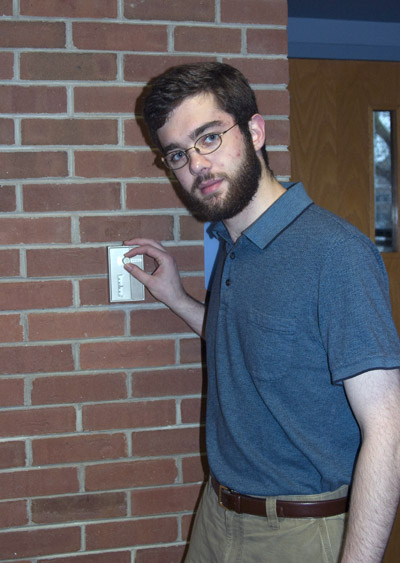Last week, Bob Yoder talked about global climate change in convocation. He did an excellent job, but the situation is scarier than he said.
Ice core records going back 800,000 years show that atmospheric carbon dioxide levels stayed below 300 parts per million until the 1960’s. Today, they are at nearly 400 P.P.M. According to the United Nations-sponsored Intergovernmental Panel on Climate Change, Earth’s temperature has risen by one degree Fahrenheit in the last century.If greenhouse gas emissions were capped at year 2000 levels (numbers we have already exceeded), Earth’s temperature would increase an additional one degree Fahrenheit by 2100. More realistic projections predict a 4-7 F increase.
As Bob pointed out, the increase in natural disasters correlate with a 1 F increase. What will 7 F do?
Meanwhile, as emissions go up, forest area is projected to go down by almost 10%-20%.
Fortunately, there do appear to be scenarios where we can achieve climate stabilization with only a 4 -11 F global temperature increase. Unfortunately, this stabilization will take until 2300, if emissions are limited soon. This kind of temperature increase will have major global effects.
Climate change is an enormous issue. It is often easier to simply write the problem off as too big to deal with, and our personal impact as too small to matter.
As Bob pointed out, the United States releases more carbon dioxide than China, despite the fact that our population is only a quarter the size of China’s. Clearly, we – as Americans and as Goshen College students –can have a substantial impact.
This is an important issue on both individual and corporate levels. What we can do to reduce our energy use and environmental impact?
The question is not simply how we can generate power (or products) more cleanly, but how can we use less overall. We need to think about how to consume less and waste less personally, corporately, regionally, nationally and globally.
My understanding is that this is taking place on a campus with significant work to reduce campus energy consumption and a commitment to making future campus buildings L.E.E.D. certified.
It is important to remember, however, that this work at a campus level does not remove our responsibilities as individuals. If anything, it should remind us that we too must be intentional about our personal decisions and how they affect the world that we rely on.
Jesse Shaver is a senior computer science major from Seattle.



